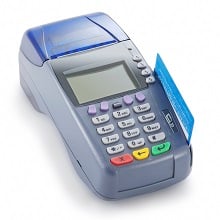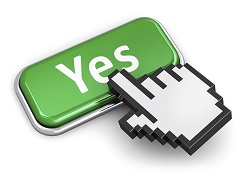 You survived Black Friday without having to give away your entire product inventory, put up with grumblings about stores opening on Thanksgiving, and prepped your staff to be as on point as possible with the maddening crowds. You’ve taken every step possible to ensure your store is as profitable as possible – so why are you hemorrhaging money? If you think the average of 1.75-2.5% fees you’re paying for interchange are just that – chump change – think again. You may actually be paying the equivalent of your entire profit margin, and then you’re operating break-even or at a loss. Learn how these fees can actually kill your livelihood and soon you’ll (inter)change the way you feel about them.
You survived Black Friday without having to give away your entire product inventory, put up with grumblings about stores opening on Thanksgiving, and prepped your staff to be as on point as possible with the maddening crowds. You’ve taken every step possible to ensure your store is as profitable as possible – so why are you hemorrhaging money? If you think the average of 1.75-2.5% fees you’re paying for interchange are just that – chump change – think again. You may actually be paying the equivalent of your entire profit margin, and then you’re operating break-even or at a loss. Learn how these fees can actually kill your livelihood and soon you’ll (inter)change the way you feel about them.
The Little Fees That Could (Wreck Your Business)
Think that interchange fees are just the cost of doing business? Think again. Why should you have to pay part of your hard-earned income just to make a transaction? OK, OK, if everything in life were scott free, there would be no business. We’d all go broke. But we’re taking the tactic that you shouldn’t have to give so much away for free, like you do when your customers elect to pay with plastic. That sound of “Cha-Ching” isn’t just your register filling up. It’s also the gleeful sound being made by Visa, MasterCard, AMEX, and your other card processors, taking part of what you just earned. How much can you afford to give away, and why should you?
Bucking the Trend
Technology may seem to make everything faster, more efficient, and cheaper, but not in the world of interchange. Remember processing credit cards through the “knuckle buster” contraption with layers of carbon forms? Gone, thanks to a quick “swipe and you’re done.” You’d think all the automation would bring a reduction in fees associated with the credit card process, too, but it hasn’t. In fact, credit card fees have bucked national trends and skyrocketed over the years.
The Gripe with Swipe
Interchange fees, also known as credit card “swipe fees,” may be one of your top three retail expenses, after employee salaries and benefits. Legislation seen in the Durban Amendment worked to put a cap on interchange fees for debit cards (noted as the most-frequently used non-cash payment method), but in many cases, they’re still much higher than they should be. If you have to recoup these costs, you’re probably going to be less likely to discount an item or offer a sale. Buyers who shop competitively will chase prices right out the door and to another retailer who isn’t charging as much or, in some cases, is offering a discount to those who pay with cash or check.
It Gets Worse
If interchange is Goliath, smaller merchants (the “Davids”) don’t stand a chance. This isn’t a morality tale where good triumphs over evil. In fact, interchange may flatten smaller retailers. When rates are dependent on volume, smaller merchants pay more as their number of transactions per month and ticket size may not be able to compete. Smaller retailers are also penalized over what’s referred to as the “card not present” situations. Do you accept payment for items over the internet? Your rate is going to be higher, as much as 4%, for what the banks determine to be a riskier scenario.
Who else pays more? Merchants who accept specialty cards, such as those that provide users with frequent flier miles, cash back, and gift cards. In many cases, you can’t even tell a consumer is using one of these cards unless they’re heavily branded so. Where you’ll notice it is in your fees, since you have to help the banks come up with the money to fund those reward programs. You didn’t think the bank was going to do it themselves, did you? So, in a way, you’re paying for something that has nothing to do with your retail organization at all. When a customer at your grocery store pays with a credit card that gives him airline miles per purchase, you may pay a higher credit card fee. He gets his airline miles (and the airline gets his business).
There is a Better Way
Sometimes, it really is this simple – there’s a better way to get paid for your products. The way that customers have paid for decades still rings true today. It’s checks, and if you’re not accepting them, you’re not only turning away hoards of potential buyers, but you’re giving up that 2.5% of your profits, too. When you accept checks as payment, you receive the full value of your asking price. You can put that back into your business, training, real estate, inventory, and more. There are even programs available to guarantee check payments and verify check writers’ financial stability. And you won’t pay nearly as much as you do in interchange fees.
 The goal for your business is to say “YES” to the customer – no matter how he wants to pay for your product. If he wants to use a credit card, you don’t want to say no and turn away the business. But there’s nothing stopping you from wagering a counter offer. Gas stations around California, for example, list one price per gallon for cash purchase, and another higher price for credit card payments. If you’re not paying interchange fees, you can pass that along to your customer in the way of a discount.
The goal for your business is to say “YES” to the customer – no matter how he wants to pay for your product. If he wants to use a credit card, you don’t want to say no and turn away the business. But there’s nothing stopping you from wagering a counter offer. Gas stations around California, for example, list one price per gallon for cash purchase, and another higher price for credit card payments. If you’re not paying interchange fees, you can pass that along to your customer in the way of a discount.
Then there are those customers who come in wanting to buy, but are turned down by their credit cards. They have no “open to buy” or “option to buy” – think of large purchases such as a vehicle down payment or a high auto repair bill. Checks to the rescue again. When you implement a multiple check program (also known as future deposit, hold check, and future hold in some circles), you allow customers to get the products they want from you by paying with 2-4 checks over a 30 day period, and you’re guaranteed payment.
Your biggest question as a retailer should be “What’s this going to cost me?” when you consider implementing anything in your business. If you haven’t taken a look at your credit card statements for a while, it’s time to (inter)change your way of thinking. It’s a lot cheaper to accept checks than credit cards. The fees you pay may well indeed be your profit margin.
Want some help navigating your credit card statement? We’re willing to bet you’ll be surprised by your charges and that what you think you’re paying is nowhere near what you’re actually paying. We’d be happy to break it down for you in a free, confidential consultation.
For more information, download our free guide and make the change today.



